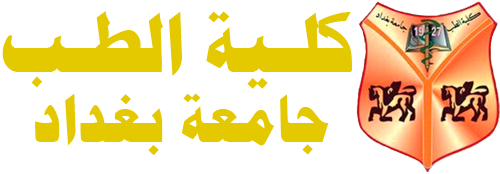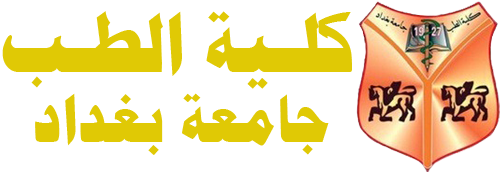الرسالة
-
تسعى كلية الطب في جامعة بغداد جاهدة لتوفير تعليم طبي ممتاز لتخريج أطباء مهيئين تماماً للعمل في العراق وأماكن أخرى، ويكونون قادرين على إكمال تدريبهم الطبي بعد التخرج.
-
يركزالمنهاج التعليمي على مخرجات التعلم بحيث يكون الهدف تخريج اطباء قادرين على أداء مهامهم كأطباء مبتدئين في تقديم الخدمات الصحية و يمتلكون المهارات العامة المتوقعة من الطلاب الذين يدرسون في جامعة بغداد.
-
يتميز المنهاج باتاحة الفرص المتزايدة لفحص المرضى في المجتمع وتعزيز درجة عالية من التكامل بين العلوم الأساسية والطبية مع الممارسة السريرية، بالاضافة على تيسير تعلم الطالب والاهتمام باختياراته.
-
يعتمد المنهاج على تدريس اجهزة الجسم بشكل منظومي دون الاقتصار على الموضوعات او الاجزاء ويتمحور حول جميع عوارض الامراض المحتملة
-
يستند المنهاج التعليمي على نشاطات تعليمية تكاملية متمحورة على الحالات المرضية والمرضى بالاضافة الى الأنشطة التعليمية العامة الأخرى , كما سيكون هناك تعليم منهجي منظم لبعض المكونات الرذيسية الهامة لضمان الكفاءة .
-
التدرج في التعلم الذاتي للطلية من خلال التدريب والاعتماد على تكنولوجيا المعلومات والتعلم عن بعد.
-
يتطابق تقويم مخرجات التعلم للطلبة في اساليبه المتعددة مع الأهداف والمعاييرالمحددة.
-
يتلقى الطلبة تغذية راجعة منتظمة عن احراز التقدم او الضعف من خلال الاختبارات التكوينبة الكترونية وبمساعدة معلم شخصي.
-
إدارة المناهج مركزياً من قبل فريق متعدد التخصصات يضم مختلف الاختصاصات في الكلية
-
إنشاء نظام مراقبة لتقييم تنفيذ المنهج الدراسي ولدعم عملية التطوير المستمر
-
تقديم الخدمات الصحية الاولية المجتمعية ضمن فرق ميدانية من الطلبة المتمرسين وحسب الحاجة
المخرجات
الغرض الاساس من ألتعليم الطبي في كلية طب جامعة بغداد هو تخريج أطباء ذوي كفاءة عاليه تؤهلهم للممارسة الامنه مدى الحياة وفق ما اكتسبوه من كفاءة وإنشاء أسس لمواصلة حياتهم المهنية بما يؤمن الوصول إلى أهداف الكلية.
تشمل هذه ألأهداف القدرة على إظهار الكفاءات في:
-
تطبيق المبادئ ألعلميه الطبية الحيوية والمعرفة بالعلوم ألأساسية كتخصصات تكاملية في نموذج يستند إلى أجهزة ألجسم بما يخدم الممارسة السريرية.
-
تسجيل تأريخ الحالة ألمرضيه، وإجراءالفحص العام والفحص ألسريري الجهازي بالإضافة على القدرة في اختيار الفحوصات المناسبة وتفسير نتائجها لحل المشكلات واتخاذ القرارات.
-
المعرفة ألأساسية و الدواعي للفحوصات ألمختبريه و الشعاعية الشائعة واستخدامها الصحيح والإجراءات المطلوبة للحصول على العينات اللازمة.
-
اكتساب المهارات العملية والاجرائية الأساسية لممارسة الطبيب اليومية
-
إتباع التقنيات المناسبة للتواصل مع ا لمرضى وأسرهم وزملاء المهنة وجميع العاملين في المجال الطبي والقدرة في إدارة المواقف الصعبة.
-
تقديم الإسعافات الأولية وإجراءالإنعاش الأساسي ودعم الحياة لجميع الفئات العمرية.
-
العمل بفعالية كجزء من فريق رعاية حالات الطوارئ في إدارة الحالات المهددة للحياة سواء كانت ناتجة عن الحوادث او الا مراض.
-
السلوك المهني المناسب والمعارف الأساسية في مبادى أخلاقيات مهنة الطب والمسؤوليات القانونية
-
اكتساب المهارات التقنية الخاصة باستخدام الحاسوب في استرجاع وجمع وتفسير المعلومات ألالكترونية فيما يتعلق برعاية المرضى و تعزيز الصحة و تقديم المشورة والمعلومات للمرضى والبحث والتعليم.
-
أداء المهام اللازمة لبرامج الرعاية الصحية الأولية العامة وتحديد التدابير الوقائية والرقابة اللازمة لحل المشاكل الصحية في المجتمع.
-
تطبيق طرق القياس الكمي و التعاون مع الاقران في البحث الطبي الحيلتي والمعرفة الاساسية في تقييم البحوث العلمية
-
القدرة على العمل ضن الفريق للتعلم المتبادل و الخدمات الصحية
الكفايات
-
المعلومات الطبية:
اظهار فهم التركيب والوظيفة الطبيعية للجسم ، وشرح مراحل تطور الامراض واستخدام الأساليب العلمية في تحديد اسبابها وفعالية علاجاتها.
-
المهارات السريرية والعملية والإجرائية :
القدرة على التعرف على المرضى في الحالات المههدة للحياة بغض النظر عن السبب ، واعطاء المعالجة الاولية المناسبة و كذلك الوصول الى المعايير المناسبة للمهارات المطلوبة في عملية رعاية المرضى.
-
. مهارات التواصل و التعامل مع الآخرين:
التواصل بفعالية وحساسية عالية مع المرضى وذويهم بالاضافة على قدرة التواصل في تقديم المعلومات السريرية شفاهة او كتابة مع الاطباء وغيرهم من المهنيين المشاركين
-
المهنية:
إظهار فهم المبادئ القانونية والأخلاقية فضلا عن معرفة المسؤوليات تجاه المرضى والأقران، وغيرهم من فريق الرعاية الصحية.
-
التعلم المستند على الممارسة وتحسين الاداء:
التحري وتقييم الرعاية الصحية المقدمة للمرضى واستخدام الوسائل العلمية في تطويرها من خلال التقييم الذاتي المستمر.
-
التعلم مدى الحياة:

